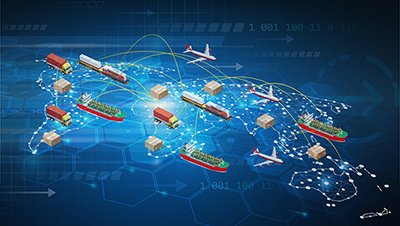How Technology Is Changing Transportation and Logistics
Technology is fundamentally altering transportation and logistics. Innovations like autonomous vehicles promise to enhance efficiency and reduce operational costs. Meanwhile, smart logistics systems facilitate real-time decision-making and visibility. The integration of big data analytics leads to optimized routing and predictive maintenance, improving overall effectiveness. As sustainability becomes a priority, electric vehicles and green practices are gaining traction. These changes are not merely trends; they signal a significant transformation in industry practices and strategies. What lies ahead in this evolving landscape?
The Rise of Autonomous Vehicles in Logistics
How are autonomous vehicles reshaping the logistics industry?
Autonomous delivery systems are revolutionizing the sector by enhancing efficiency and reducing costs. These vehicles are engineered with advanced safety features, minimizing accidents and ensuring compliance with regulatory standards.
As logistics companies adopt this technology, they unlock greater operational freedom while maintaining stringent vehicle safety measures, ultimately paving the way for a more agile and responsive supply chain.
See also: How 5G Networks Will Change Mobile Connectivity
Smart Logistics Systems and Their Impact
As logistics companies increasingly integrate smart logistics systems, they are experiencing transformative impacts on efficiency and decision-making processes.
Smart inventory management optimizes stock levels, reducing costs and enhancing service delivery. Additionally, predictive maintenance minimizes equipment downtime, leading to smoother operations.
Together, these innovations empower logistics firms to adapt swiftly to market changes, fostering a more agile and responsive supply chain.
The Role of Big Data and Analytics
Big data and analytics have emerged as pivotal elements in the evolution of transportation, driving significant advancements in operational efficiency and strategic decision-making.
By leveraging predictive analytics, companies can forecast demand patterns, optimizing routes and reducing costs.
Furthermore, data integration across various platforms enhances real-time visibility, enabling informed choices that empower stakeholders to navigate complexities, ultimately fostering a more agile and responsive transportation ecosystem.
Sustainability Innovations in Transportation
The integration of big data and analytics has paved the way for innovative approaches to sustainability within the transportation sector.
Notable advancements include the widespread adoption of electric vehicles, which significantly reduce carbon emissions.
Additionally, green logistics practices are being implemented to optimize supply chains, minimizing waste and enhancing resource efficiency.
Collectively, these innovations empower the transportation industry to achieve greater environmental responsibility while ensuring operational freedom.
Conclusion
In summary, technology is not merely transforming transportation and logistics; it is orchestrating a symphony of efficiency, safety, and sustainability that resonates across the industry. The integration of autonomous vehicles, smart logistics systems, and big data analytics creates a dynamic environment where operational excellence thrives. Moreover, the shift towards sustainable practices is monumental, heralding a new era of environmental responsibility. As these innovations continue to evolve, they promise to redefine the very essence of global logistics and transportation.



